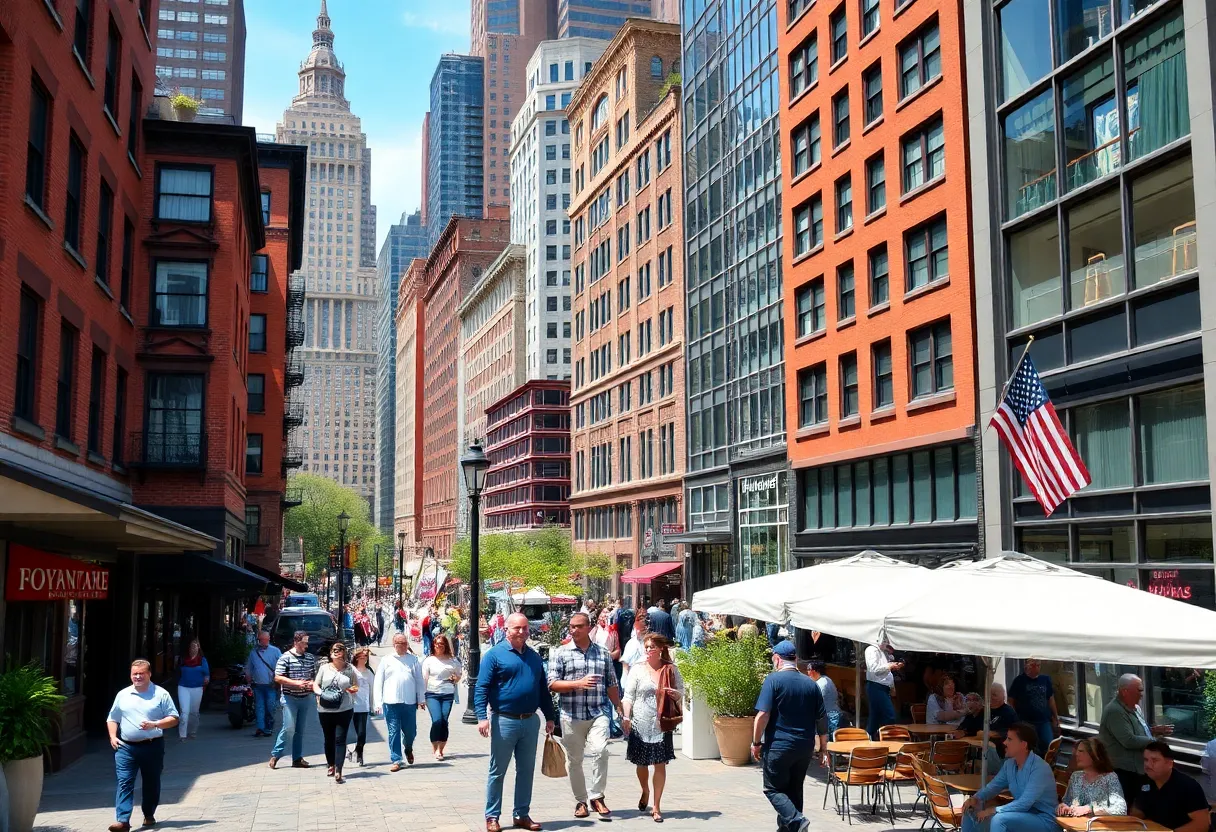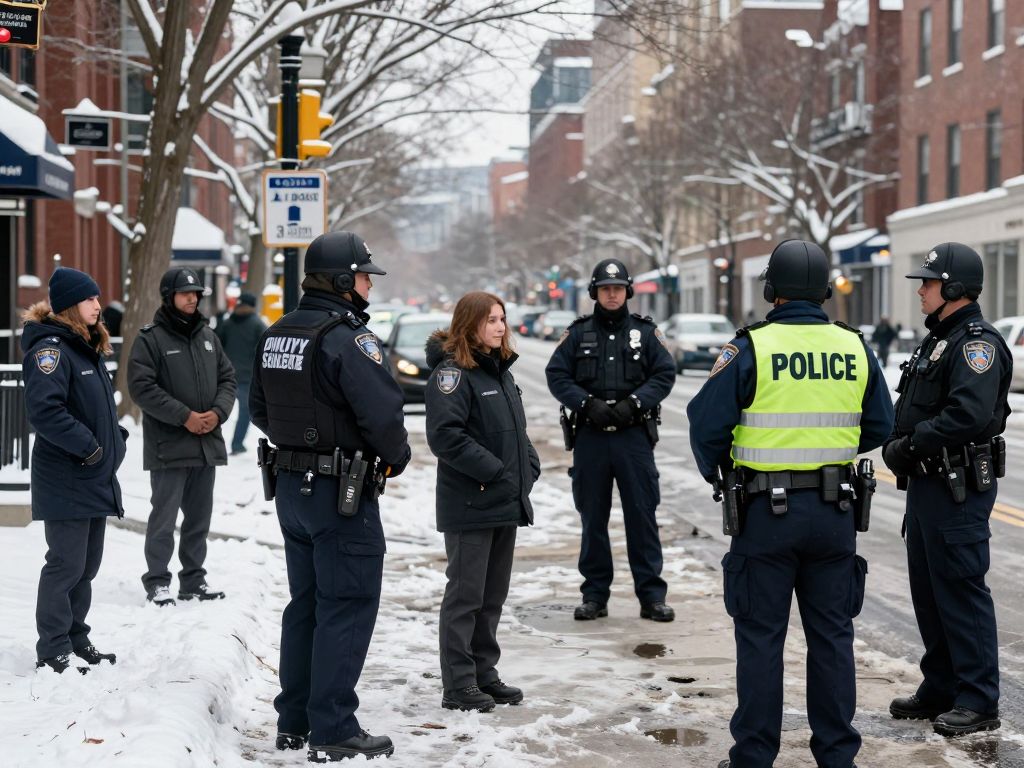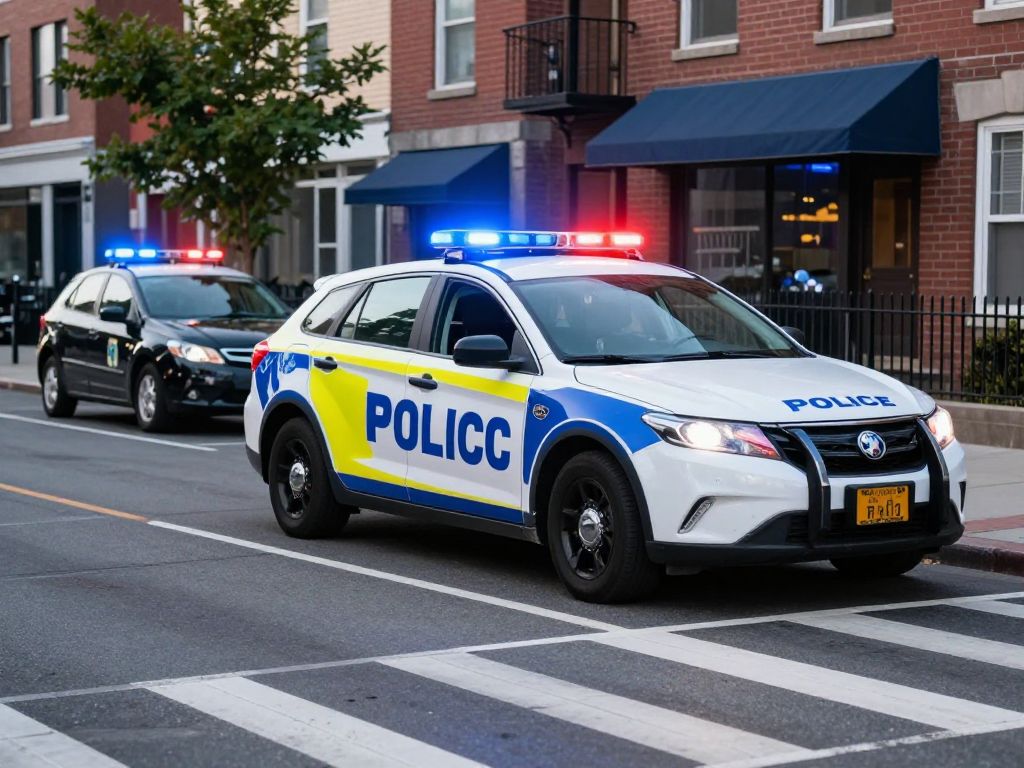Boston, September 8, 2025
News Summary
Downtown Boston is grappling with a significant economic revival challenge, marked by over 20% office vacancy and a 30% drop in attendance since the pandemic. With competing pressures for development and preservation, city leaders and community stakeholders are evaluating various strategies such as public investments, new zoning proposals, and operational changes to stimulate growth and support small businesses. Revitalization measures consider accessibility for families and aim to create a vibrant downtown environment for residents and visitors alike.
Boston
Downtown Boston is facing a complex economic revival challenge as vacancy and attendance have fallen while development pressures and preservation conflicts intensify. More than 20% of office space in the downtown core is currently vacant, and office attendance is down by about 30% compared with pre-pandemic levels. City leaders, business groups and community stakeholders are weighing a mix of public investments, policy changes and development plans aimed at bringing people, jobs and activity back to the area.
Current conditions and immediate risks
The downtown office market shows sustained weakness, with significant idle space that reduces economic activity for retailers, restaurants and service providers. Lower weekday office attendance has translated into thinner lunchtime and evening demand, making it harder for small businesses to survive. At the same time, revitalization efforts are complicated by competing views on how to balance new development with historic preservation.
Proposed revival measures
A range of proposals has emerged to revive downtown activity. One approach calls for renewed public investment described as “old-fashioned boosterism,” where government spending helps subsidize visits and support local businesses. Specific ideas under discussion include a small per-person subsidy for evening and weekend family visits, guidance on parking for families arriving by car, and food voucher programs targeted to slow weekdays to assist restaurants.
Officials and advocates are also considering operational and policy changes, such as requiring public meetings to be held in person at City Hall to increase daytime foot traffic and visible city worker presence downtown. Continued municipal support for startup businesses and cultural organizations is seen as a complementary strategy to sustain long-term economic vibrancy.
Accessibility and family needs
Families with small children face practical barriers when using public transportation for downtown visits, particularly during bad weather. These challenges reduce casual visits by residents and tourists and make targeted subsidies and better information on parking and family-friendly amenities a part of the broader discussion about how to increase downtown use outside standard work hours.
Development, zoning and preservation conflicts
Zoning proposals announced by the Boston Planning Department would allow taller residential buildings downtown, with a requirement that at least 60% of units be residential and new towers could reach up to 500 feet in height. These proposals have drawn criticism from residents and preservation advocates who view the plans as favoring development over historic character.
The zoning approach has created contrast with neighboring areas, where different rules seek to protect neighborhood scale. For example, Chinatown has proposed sharply reduced maximum heights to protect historic structures, while downtown zoning would permit larger buildings. The tension highlights a broader citywide debate over growth, density and preservation.
Local controversies and rising costs
Several high-profile projects have surfaced as focal points for opposition. Redevelopment plans for White Stadium in Franklin Park, a site with historical significance, have prompted community backlash. Project cost estimates for White Stadium have risen substantially, from roughly $50 million to about $200 million, adding fiscal and political complexity to the proposal.
Meanwhile, City Hall has been granted landmark status even as some stakeholders press for increased downtown development. The city planning office has been criticized by some who argue the zoning plans prioritize new construction over conserving historic sites.
Business and programmatic responses
The Downtown Business Improvement District has been rebranded as the Downtown Boston Alliance (DBA) with a stated goal of repositioning the district as a destination for living, shopping and tourism in a post-pandemic environment. Economic programs such as the Level Up Downtown initiative have reported early progress in reducing storefront vacancies and boosting foot traffic through events and activation.
The DBA is planning seasonal programming, new event space and other activities to draw residents and visitors. The organization anticipates several new retail lease signings by the end of 2025 as part of its recovery strategy.
Other development projects and transit considerations
Outside the immediate downtown area, proposals such as a hotel project by City Realty in Allston, converting an auto-parts site into lodging, aim to support local vitality without adding parking, relying instead on proximity to public transit to limit car use. These kinds of projects reflect a broader effort to balance growth, transit access and neighborhood impacts.
What happens next
City officials, developers, business groups and neighborhood advocates will continue negotiating zoning rules, preservation protections and targeted spending measures. Short-term approaches under consideration—small subsidies, weekday food voucher programs and in-person public meetings—are intended to quickly increase visits and spending. Longer-term strategies include maintaining funding for startups and cultural institutions, implementing zoning changes to allow more housing and mixed-use development, and staging events that boost evening and weekend activity.
Background
Downtown Boston has been central to the region’s economy since the city’s founding in 1822. The pandemic accelerated remote work and changed commuting patterns, leaving downtown with a surplus of office space and fewer daily visitors. Responses now mix market-based development, government intervention and community-led preservation efforts as the city seeks an economic balance that supports jobs, housing and historic character.
FAQ
What is the current office vacancy rate downtown?
The downtown office vacancy rate is reported at more than 20%.
How much has office attendance changed?
Office attendance in downtown Boston is down by about 30% compared with pre-pandemic levels.
What zoning changes are being proposed?
Proposed downtown zoning would allow taller residential towers, permitting buildings up to 500 feet tall with a requirement that at least 60% of units be residential. These proposals face criticism from preservation advocates.
What measures are being suggested to revive downtown?
Suggested measures include direct public subsidies for family visits, parking guides, weekday food vouchers for restaurants, in-person public meetings at City Hall to boost foot traffic, continued funding for startups and cultural groups, and expanded events and programming.
Are there specific redevelopment controversies?
Yes. Redevelopment of White Stadium in Franklin Park has drawn backlash and its estimated costs rose from roughly $50 million to about $200 million. Other debates involve City Hall’s landmark status and differing height limits in neighborhoods like Chinatown.
What role is the Downtown Boston Alliance playing?
The Downtown Business Improvement District was rebranded as the Downtown Boston Alliance and is leading programs to reduce storefront vacancies, increase foot traffic, plan events and attract new retail leases by the end of 2025.
Quick reference table
| Item | Key detail |
|---|---|
| Office vacancy | More than 20% |
| Office attendance drop | About 30% below pre-pandemic levels |
| Proposed maximum tower height | Up to 500 feet (with ≥60% residential units) |
| White Stadium estimated cost | Increased from ~$50 million to ~ $200 million |
| DBA goals | Reduce storefront vacancies; increase foot traffic; new retail leases by end of 2025 |
| Sample short-term supports under discussion | $5 visit subsidies, parking guides, Monday/Friday food vouchers, in-person City Hall meetings |
| Notable nearby project | City Realty hotel in Allston replacing an auto-parts store; no added parking planned |
Deeper Dive: News & Info About This Topic
HERE Resources
Boston Hosts Agents’ Choice Awards for Real Estate Excellence
Mini Golf Madness in Massachusetts: Discover the Top 5 Courses for Family Fun!
Revival of Matchmaking Services Inspired by Film ‘Materialists’
Boston Hotels Shine Bright on Tripadvisor’s Traveler’s Choice Awards
Massachusetts Pushes for Happy Hour Law Change
New Proposal to Revive Historic Alexandra Hotel in Boston
South Coast Rail Service Set to Launch in Fall River
Developments Reshaping Real Estate in Boston’s South Shore
Boston’s Restaurant Scene Faces Tough Times
Additional Resources
- Boston Globe: Letters on Jump-Starting Downtown Boston
- Bisnow: New Proposals Create Confusion for Boston’s Historic Districts
- Boston Real Estate Times: Downtown Boston Business Improvement District Initiatives
- CoStar: Creating Public Parks Boosts Commercial Development
- Boston Globe: Michelle Wu on Downtown Neighborhoods
- Wikipedia: Boston
- Google Search: Boston Economic Development
- Google Scholar: Boston Urban Development
- Encyclopedia Britannica: Boston
- Google News: Boston Business News

Author: STAFF HERE BOSTON WRITER
The BOSTON STAFF WRITER represents the experienced team at HEREBoston.com, your go-to source for actionable local news and information in Boston, Suffolk County, and beyond. Specializing in "news you can use," we cover essential topics like product reviews for personal and business needs, local business directories, politics, real estate trends, neighborhood insights, and state news affecting the area—with deep expertise drawn from years of dedicated reporting and strong community input, including local press releases and business updates. We deliver top reporting on high-value events such as Boston Marathon, Head of the Charles Regatta, and Boston Harborfest. Our coverage extends to key organizations like the Greater Boston Chamber of Commerce and Associated Industries of Massachusetts, plus leading businesses in finance, biotech, and insurance that power the local economy such as Fidelity Investments, Biogen, and Liberty Mutual Insurance. As part of the broader HERE network, we provide comprehensive, credible insights into Massachusetts's dynamic landscape.





